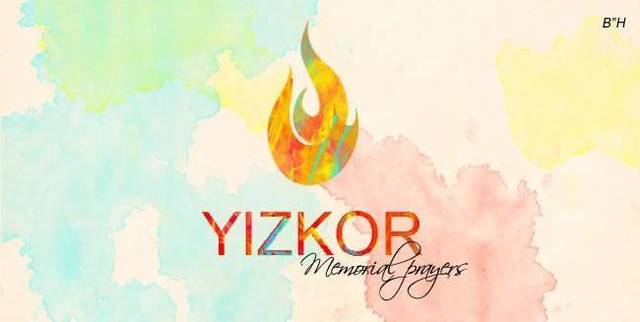Josef Stalin once observed, “One death is a tragedy, a million deaths are a statistic.”
In my last semester of undergraduate studies I took a class in World Politics from the recently retired chancellor of Pitt, Wesley Posvar. One of the assigned texts began with the premise that Stalin, Adolf Hitler, and Mao Tse-Tung together were responsibly for roughly eighty-seven million deaths – many of them their own people, the very people a leader might be though to protect. They were, in short, architects of megadeaths, many millions of them even prior to Herman Kahn’s invention of the term. Ironically, Kahn created the word to describe the human cost of thermonuclear war, yet not one of these leaders ever detonated an atomic bomb. They achieved their dubious distinctions by mass-producing human cruelty.
To a person with emunah, with faith, megadeaths like the Holocaust, the Ukranian famine, or the “Cultural Revolution” beg for a meaningful response. Simcha Raphael, of the DAAT Institute, shares in a 2008 paper[i] that the origin of Jews praying for the dead, and ultimately of the Yizkor service, is to respond to the trauma of megadeaths (on the smaller scale of the ancient world) that befell the people.
Raphael places the earliest mention of such prayers in the time of the Maccabean revolt, when fallen soldiers were gathered and prayers offered for their souls. The Yizkor service, however, rose out of the ashes of the First Crusade, when thousands of Jews in the Rhineland were slaughtered by the Crusaders, and was originally observed on the Shabbat before Shavout, the one just past as I publish this piece. Coincidentally or not, this same season is the one that the United States of America has chosen to honor its fallen soldiers. Later massacres in which mobs attacked Jews that they blamed for the Black Plague were commemorated in German Jewish tradition as Shabbat Shakhor, Black Sabbath, on Shabbat Hazon, the Shabbat immediately before Tisha B’Av.
How well we, in Pittsburgh, understand this feeling now. We have recited Yizkor five times so far since our own pogrom; the first time we did so was mere hours before another eerily similar attack happened in Poway, CA. Our liturgy now includes a version of El Male Rachamim, God full of compassion, composed by Rabbi Daniel Yolkut in memory of our own martyrs. The experience is transformed into one that would be very familiar to the originators of Yizkor in the Rhineland a thousand years ago.
Yet Raphael, citing another Pittsburgh rabbi, Solomon Freehof, highlights another, later purpose for Yizkor that will be equally recognizable to most of us: Yizkor as the family memorial service, when individuals dear to us are remembered, communally and yet privately, in the liturgy. Plaques are unveiled, names of those lost in the preceding year remembered, books with messages of loss and longing printed.
The melding of these purposes into a single service is one of the clearest expressions of why Judaism will always stand against the Stalins of the world. In the face of megadeaths, we struggle to return the faces to the individuals who have died. We call them by their names, we each take on the responsibility of remembering those close to us, and we communally take on the responsibility of mourning those who have no one close. A million deaths in Judaism is not a statistic – it is a million tragedies, a million individual human lives.
Years ago I observed a taharah, the ritual purification of a person’s corpse before burial, for the first time. While I had been prepared for it, through reading the books provided by the New Community Chevra Kadisha and through a patient orientation by Rabbi Ron Symons, the experience was still transformative. I went home that night and wrote in my journal about the extraordinary care this ritual requires, and also the extraordinary caring that motivates at least four individuals to interrupt their routines and lovingly, gently, and patiently provide a final kindness to a person who, in many cases, they never knew. It cemented the holiness of each individual for me.
In particular my mind fell on the nine kavim of water, equivalent to three large plastic buckets, used in washing each met, each deceased person. I thought through the macabre math problem of how many buckets, how much water, would have flowed had each of the Jewish victims of the Shoah been provided a proper Jewish taharah. 54 million kavim. It evoked the words of the Nishmat Kol Chai prayer, said as a prelude to the morning service every Shabbat and Yom Tov: “Ilu pinu male shira kayam . . . ein anachnu maspikim l’hodot l’cha.” “If our mouths were full of song as the sea (is filled with water) . . . we would not be able to sufficiently praise you.”
Ilu pinu male shira kayam . . . ein anachnu maspikim liv’kot l’cha. If our mouths were as full of song as the sea (is with water) . . . we would not be able to sufficiently mourn you.
We have once again entered such a time, a time when there is not enough water, indeed, not enough time, to sufficiently mourn. Over the first few months of this year we saw bodies pile up on islands in the East River. People in Wuhan, China, suspicious that the government was minimizing the death and disease in their city, suspected the truth because the crematoria were working overtime. Philadelphia and other cities repurposed vehicles to double as morgue vehicles.
I fear we are also dangerously close to entering the mindframe that Stalin counted on. Our obsession with statistics about coronavirus, with projected death and disease tolls, and with the political and scientific arguments about how to count them (and how worried to be about them, and whether they are somehow worse than dying of the flu), threaten to obscure the fact that each of these hundreds of thousands of people was a person. It is a megadeath, and threatens very quickly to become an abstraction for many people, much as the Shoah has become for the current generation – complete with its own cadre of cynical deniers.
Yizkor Elohim et nishmoteihem – may God remember their souls. Even as we grapple with how long to stay closed, when and how to reopen, how to have Shabbat dinner or provide comfort to people without hugging them or how to pray together from far apart, we grapple with remembering their individual souls.
Begin by remembering names. While many American Jews are descended from survivors of the Shoah, for many who are not, a name of a child with whom they “twinned” a Bar or Bat Mitzvah creates a connection to a real person who suffered that horror. My two older children have learned to honor individual American veterans by going with their social studies teacher to plant flags on their graves each spring. Honor someone’s memory in this current crisis as well: read the Medscape memorial list of healthcare workers who have died trying to save others from this disease. Seek out families who have lost someone and offer comfort. Be a source of comfort or financial support to the living casualties, to the people who live in fear as they go to essential work each day or who live in poverty because they have no work to go to. Find a name of someone lost to the pandemic and say Yizkor for them – whatever their religion – so that they might not become a statistic.
Most of us will not be physically in synagogue this year, but if we were it would be time to do away with the superstition schmooze – the knot of people out in the hallway during Yizkor who still have two living parents and therefore “no one to say it for.” Ilu pinu – even if our mouths were so full of song, there are more than enough names to go around. It will take every one of this to ensure no one is forgotten. Yehi zichram baruch. May their memories be for a blessing.
[i] http://www.daatinstitute.net/wp-content/uploads/2013/04/YizkorDAAT.pdf


